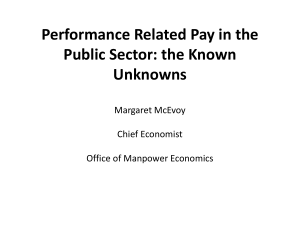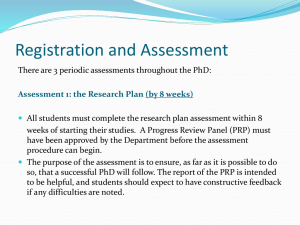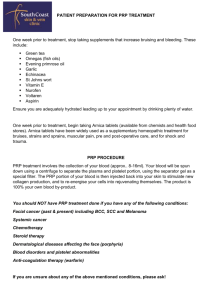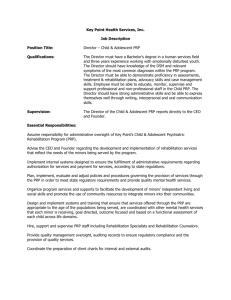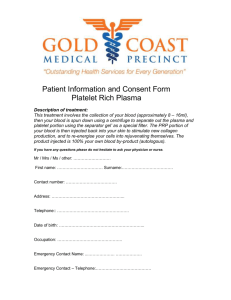Department of Infection, Immunity and Inflammation
advertisement
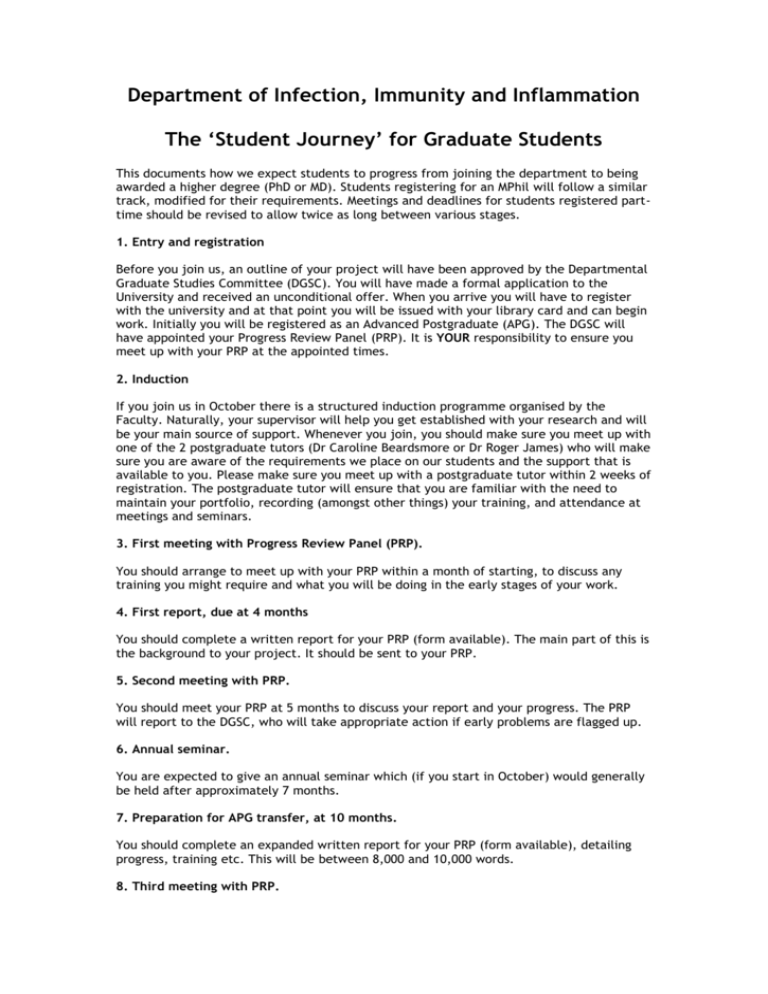
Department of Infection, Immunity and Inflammation The ‘Student Journey’ for Graduate Students This documents how we expect students to progress from joining the department to being awarded a higher degree (PhD or MD). Students registering for an MPhil will follow a similar track, modified for their requirements. Meetings and deadlines for students registered parttime should be revised to allow twice as long between various stages. 1. Entry and registration Before you join us, an outline of your project will have been approved by the Departmental Graduate Studies Committee (DGSC). You will have made a formal application to the University and received an unconditional offer. When you arrive you will have to register with the university and at that point you will be issued with your library card and can begin work. Initially you will be registered as an Advanced Postgraduate (APG). The DGSC will have appointed your Progress Review Panel (PRP). It is YOUR responsibility to ensure you meet up with your PRP at the appointed times. 2. Induction If you join us in October there is a structured induction programme organised by the Faculty. Naturally, your supervisor will help you get established with your research and will be your main source of support. Whenever you join, you should make sure you meet up with one of the 2 postgraduate tutors (Dr Caroline Beardsmore or Dr Roger James) who will make sure you are aware of the requirements we place on our students and the support that is available to you. Please make sure you meet up with a postgraduate tutor within 2 weeks of registration. The postgraduate tutor will ensure that you are familiar with the need to maintain your portfolio, recording (amongst other things) your training, and attendance at meetings and seminars. 3. First meeting with Progress Review Panel (PRP). You should arrange to meet up with your PRP within a month of starting, to discuss any training you might require and what you will be doing in the early stages of your work. 4. First report, due at 4 months You should complete a written report for your PRP (form available). The main part of this is the background to your project. It should be sent to your PRP. 5. Second meeting with PRP. You should meet your PRP at 5 months to discuss your report and your progress. The PRP will report to the DGSC, who will take appropriate action if early problems are flagged up. 6. Annual seminar. You are expected to give an annual seminar which (if you start in October) would generally be held after approximately 7 months. 7. Preparation for APG transfer, at 10 months. You should complete an expanded written report for your PRP (form available), detailing progress, training etc. This will be between 8,000 and 10,000 words. 8. Third meeting with PRP. You should arrange to meet with your PRP at 11 months to examine your progress and your report. The PRP will want to test the level of your understanding of your topic and the work you have been doing, to look at what opportunities you have taken for training and broadening your knowledge, and how you see your work developing in future. They will need to submit a report on you to the DGSC. 9. APG transfer The transfer from APG to PhD or MD is not automatic. It is an important milestone and you will need to demonstrate to your PRP that you have fulfilled the requirements and have the ability and depth of understanding to proceed. The DGSC will consider the report of the PRP. If this is satisfactory you will be recommended for upgrade to registration for MD or PhD. If your progress is not satisfactory the DGSC may recommend that you transfer to an MPhil, or they may recommend termination of your registration. (Under these circumstances you can appeal through the university channels as indicated in the Postgraduate Regulations). If there are reservations about your progress you may be asked to resubmit your report within a month and have a further meeting with your PRP, before a final decision is made. The report you have prepared in advance of the APG transfer should be submitted to the Graduate Office, who require an annual report from all students. The report from the PRP will form the basis of the report that the department is asked to submit on each student. 10. Your second year You will be asked to give your next seminar in the second half of your second year of registration. This will be attended by your PRP who will give you feedback. Towards the end of our second year you will be expected to provide a substantial report for your PRP (form provided) and again you will meet with your PRP for some in-depth discussion of your progress and research work. At this stage you would be expected to have a substantial amount of data and the discussion will focus on your results and interpretation of them. The PRP will send a report to the DGSC and a copy will be kept on file. If progress is satisfactory the DGSC will recommend registration for your third year. If progress is unsatisfactory the DGSC will consider what action may be appropriate. The report you prepared should be submitted to the Graduate Office. 11. Your third year Final-year seminars will usually take place during the summer months as part of the Departmental seminar programme. Your third year will usually be busy as you complete your laboratory work and begin to focus on completion. Some students will be aiming to complete their writing-up during this time as well. You will submit a report to your PRP approximately 34 months after initial registration, which will include details of how you plan to complete your higher degree and a timetable for this. The PRP will send a report to the DGSC. Suggestions for your examiners will be made. Please note that you will need to send in an ‘Intention to Submit’ form to the Graduate Office three months before you submit your thesis. 12. Your final year If you are having a fourth year for writing-up you can be registered as a ‘writing-up’ student. The fees for this are modest but there are limitations on inter-library loans and you must not be working in the laboratory as insurance is not in place. If you have a ‘writing-up’ year the graduate school will request a report from you and your supervisor after 6 months and again after 9 months.
